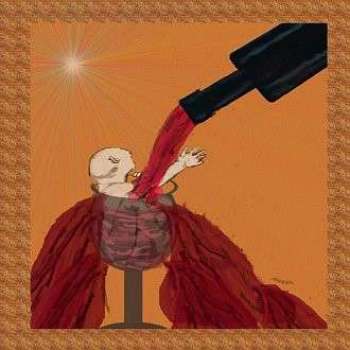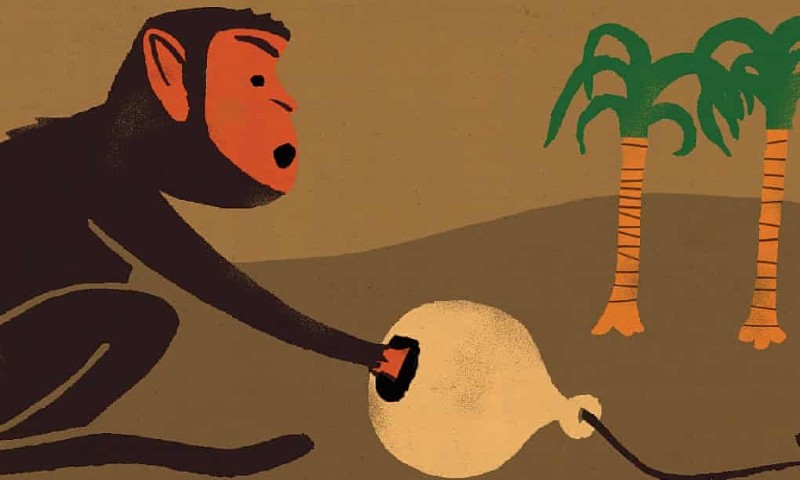
Refraining from consuming intoxicants may be the most controversial of the five Buddhist Precepts. Indeed, there is debate as to whether the precept means restraining entirely from all alcohol and drug use, or just restraining from getting out-of-your-face drunk (or high). Others debate whether the precept applies to laypeople, or only to monastics. And even then, many disagree as to whether it is acceptable for a monastic to indulge in a glass of wine here and there. Despite the myriad opinions on the matter, I think most would agree that having an addiction to intoxicants will inevitably cause a great barrier to one’s practice. And yet. . .
My instinct tells me to investigate this a little further. After all, our paths towards liberation are colorful, unique, and—more often than not—a little bonkers. Which leads me to wonder: does an addict absolutely have to kick the addiction before embarking on the Buddhist path?
According to Theravada Buddhist monk and scholar Bhikkhu Bodhi, the Buddha was very clear about his reason for prescribing the fifth precept: indulging in alcohol and drugs will lead to heedlessness (pamada), which inevitably shadows a person’s ability to see things as they are. In his essay entitled A Discipline of Sobriety, Bhikkhu Bodhi observed with sadness that alcoholism was gaining a hold on the Sri Lankan population and outlined the significant impact of these unwholesome habits:

“When the use of intoxicants eats away at even the most basic moral scruples, little need be said about its corrosive influence on the two higher stages of the path. A mind besotted by drink will lack the alertness required for meditative training and certainly won’t be able to make the fine distinctions between good and bad mental qualities needed to develop wisdom. The Buddhist path in its entirety is a discipline of sobriety, a discipline which demands the courage and honesty to take a long, hard, utterly sober look at the sobering truths about existence. Such courage and honesty will hardly be possible for one who must escape from truth into the glittering but fragile fantasyland opened up by drink and drugs.” (Access to Insight)
As Bhikkhu Bodhi highlights in the above passage, the Buddhist practice demands the courage and honesty to take a long, hard, utterly sober look at the sobering truths about existence. Personally, I wholeheartedly agree with this statement. Having tried sitting on the meditation cushion feeling “tipsy” (let’s leave it at that), I must admit that my monkey mind is all the more dynamic when I am intoxicated. On a deeper level, I believe that many of us turn to drugs and alcohol to do exactly the opposite of what the Buddhist practice demands. That is, to have a distraction from what is currently going on with us—internally and externally—right now. And yet, as I deepen into my own practice, I cannot help but draw similarities between the journey of the Buddhist and that of the addict. After all, the root cause of addiction is craving (tanha) which, in the Second Noble Truth, is pinpointed as the root cause for all suffering. In this sense, I believe that addiction can in fact serve as a foundation upon which the Buddhist path may flourish.

When talking about addiction I will refer to the definition used by Buddhist psychiatrist and author Judson Brewer in The Craving Mind: From Cigarettes to Smartphones to Love—Why We Get Hooked and How We Can Break Bad Habits: “Addiction is continued use, despite adverse consequences.” (Brewer 2017, 45) This definition of addiction does not only apply to alcohol and drugs, but also refers to our addictions to technology, food, love, etc. We can consider ourselves addicted when we perpetuate actions even when the negative consequences clearly outnumber the positive ones.
As an outpatient psychiatrist for the Veterans Administration Hospital in West Haven, Connecticut, Brewer worked closely with Veterans and noted that his patients generally engaged in substance abuse to escape unpleasant memories, thoughts and feelings. He refers to this process as reward-based learning, whereby patients experience a trigger, such as recalling a traumatic event, and turn to a substance (behavior) in order to avoid reliving the experience (reward). This creates a loop of trigger-behavior-reward which feeds itself and therefore feeds the addiction.

“Each time we drink, smoke, or do some other behavior as a way to escape an unpleasant experience, we train ourselves to do it again—without having fixed the problem. If we keep going in that direction, our suffering will continue endlessly.” (Brewer 2017, 67) Brewer notes that the reward-based learning system shares the same steps as dependent origination in Buddhism. He likens the process to the cycle of rebirth, whereby the outcomes of our actions are imprinted as a memory and condition the next cycle; in other words, the perpetuation of samsara.
In a very successful study he conducted on smoking, Brewer taught participants how to “surf the wave.” Using RAIN as a tool, he assisted them to be mindful of their experience by 1) “R” recognizing/relaxing into the craving as it arises; 2) “A” accepting/allowing it to be there; 3) “I” investigating bodily sensations, emotions and thoughts; and 4) “N” noting what is happening from moment to moment. In this way, participants were encouraged to be present with their cravings instead of trying to avoid them. Every time they experienced a craving come and go—without acting on it—the link between craving and smoking weakened, and new habits (in this case not smoking) were formed.
Brewer notes: “In my own exploration of meditation, I had run across a fair number of ancient Buddhist teachings that emphasized working with craving. Target craving and you can conquer an addiction. And this targeting of craving was not through brute force but, counterintuitively, through tuning toward or getting close to it. Through direct observation, we can become, as the term asava is translated, less ‘intoxicated.’” (Brewer 2017, 64)
The beauty of this method, in my opinion, is that by simply noting and experiencing the cravings as they come and go, we are taking action. In sitting with, observing and experiencing our cravings as they grow and falter, we are able to put into practice Bhikkhu Bodhi’s emphasis on investigating the sobering truths about existence. Now, by no means am I advocating for someone with an addiction to rely solely on mindfulness to kick their habit; there are countless programs that can assist people in their journeys towards sobriety (e.g. Alcoholics Anonymous, Narcotics Anonymous, SMART meetings, etc.) What I will say, however, is that there is never a need to delay our engagement with Buddhist teachings: every moment, however it finds us, is a ripe opportunity for practice.
References
Brewer, Judson. 2017. The Craving Mind: From Cigarettes to Smartphones to Love—Why We Get Hooked and How We Can Break Bad Habits. New Haven and London: Yale University Press.
See more
A Discipline of Sobriety (Access to Insight)













